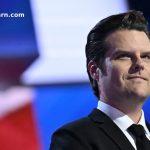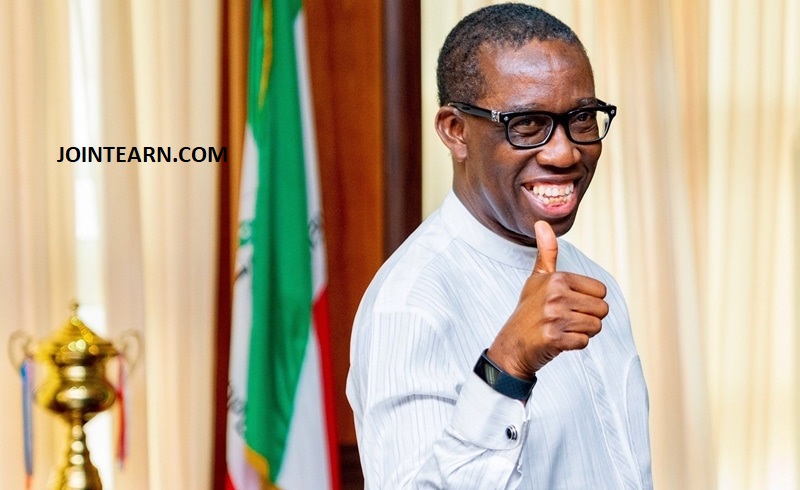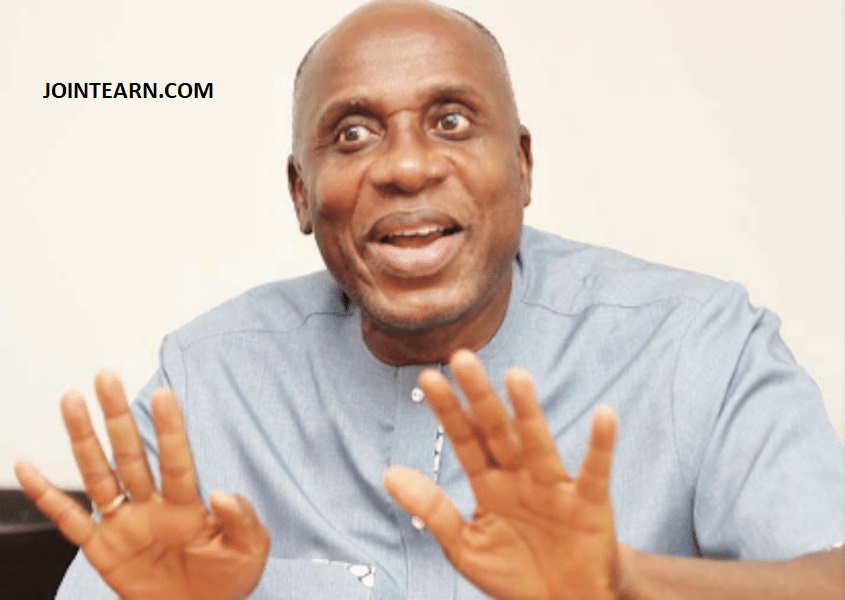A former President of the Senate, David Alechenu Alechenu Mark, has mocked the recent defection of Delta State Governor, Ifeanyi Okowa, to the All Progressives Congress (APC), pointing out that Okowa, as the vice-presidential candidate for the Peoples Democratic Party (PDP) in the 2023 general elections, was unable to deliver his home state to the party. Mark, a seasoned politician and senior member of the PDP, expressed disappointment at the defection, suggesting that Okowa’s move to the APC could not erase the failure to sway his own state in favor of the PDP during the elections.
In a sharp response to the political development, Mark, who was speaking to journalists in Abuja on Thursday, questioned the rationale behind Okowa’s decision to join the ruling party. He also criticized the APC for what he described as a “parasitic” behavior, which thrives on absorbing defectors for political advantage without offering anything meaningful to the party or the nation.
Mark’s Criticism of Okowa’s Leadership
Mark, who is a close ally of former PDP presidential candidate Atiku Abubakar, did not hold back in his criticism of the defection. He pointed out that Okowa, despite his high-ranking role in the PDP as a vice-presidential candidate, was unable to ensure electoral success for the party in his home state of Delta. “If the man who was the running mate to Atiku Abubakar, who campaigned extensively across the country, could not even deliver his own state to the party, one has to question his commitment to the cause,” Mark stated.
Delta State, historically a stronghold for the PDP, fell to the APC in the presidential election of 2023, a shocking outcome given Okowa’s position in the party. The loss in Delta, despite Okowa’s candidacy, was viewed as a serious blow to the PDP’s prospects. Mark, in his statement, suggested that Okowa’s defection to the APC was an attempt to align with the “winning side” after the election results, but he dismissed it as an opportunistic move.
“You fail to deliver in your own backyard and then expect people to believe you have any long-term political vision? This is just another example of politicians shifting sides when it suits them,” Mark quipped.
Political Calculations Behind the Defection
The defection of Governor Okowa, who had served two terms as the governor of Delta State, to the APC has generated heated political discourse, with some praising him for making a bold move to align with the ruling party, while others see it as an act of political opportunism. Many pundits speculate that Okowa’s move was influenced by the dynamics surrounding the 2027 general elections, where alliances and realignments are expected to shape the race for the presidency and governorship seats.
In Mark’s view, Okowa’s defection was more about personal ambition than any deeper ideological shift. “The defection is simply a personal calculation by Governor Okowa to preserve his political relevance within the national arena, particularly as he eyes a potential role in the APC’s plans for 2027,” Mark explained.
Okowa, who is widely regarded as a seasoned politician with deep roots in Delta State, has also been a key figure in the South-South region. His defection to the APC is seen by some as a move to strengthen the party’s presence in the region, which has traditionally been a PDP stronghold. The APC, meanwhile, has welcomed the defection as a significant boost, pointing to Okowa’s status as a two-term governor and former vice-presidential candidate.
However, Mark remained unconvinced that the APC would truly benefit from Okowa’s defection in the long term. He noted that many of the APC’s new members, particularly those who joined after the 2023 elections, often struggle to maintain their relevance once they have crossed over to the ruling party.
Delta State: A Divided Political Landscape
Mark’s comments about the failure to deliver Delta State in the 2023 elections highlight the growing political division within the state. While the PDP has traditionally dominated the state, with Okowa’s leadership being a central part of its strength, the party’s grip has loosened in recent years. Some analysts believe that Okowa’s defection signals a shift in political loyalties in the state, with the APC gaining ground among key political figures.
However, many local observers in Delta State view Okowa’s move with skepticism, questioning whether the governor can truly alter the political dynamics of the state under the banner of the APC. Some believe that Okowa’s departure from the PDP could result in a backlash from his supporters in Delta, who view the defection as an act of betrayal, particularly after Okowa’s vocal role in the PDP during the 2023 campaigns.
“Delta has always been PDP territory, and Okowa’s defection may not change that in the long run. The people of Delta are politically savvy and will not easily forget the years of leadership under the PDP,” said one political observer based in Asaba.
Mark’s Call for PDP Unity
In his statement, Mark also called on the leadership of the PDP to remain united despite the ongoing defections and internal challenges. He emphasized the importance of focusing on rebuilding the party and re-engaging with its supporters across Nigeria.
“The defection of individuals is not the end of the PDP. We must remember that the party belongs to the people, not a few individuals. The leadership of the PDP must now focus on healing the wounds caused by defections, strengthening our party structure, and preparing for the future,” Mark said.
Mark’s call for unity comes at a time when the PDP is grappling with significant internal divisions, exacerbated by the defections of key figures to the APC. However, many party leaders remain hopeful that the PDP can regroup and present a strong opposition to the APC in future elections.
Conclusion: The Battle for Delta’s Political Future
Mark’s remarks about Okowa’s defection have added fuel to the ongoing debate over the future of political allegiances in Nigeria. While Okowa’s move to the APC may provide temporary gains for the ruling party, it remains to be seen whether it will lead to long-term success in Delta State and the broader South-South region.
As the PDP works to reorganize and recover from these defections, the party faces an uphill battle in maintaining its dominance in Delta. With 2027 just around the corner, political observers will be watching closely to see how both the PDP and APC navigate the shifting political terrain.
In the meantime, David Mark’s critique of Okowa’s actions serves as a reminder that, in Nigerian politics, loyalty and leadership are often fluid, and defections are an all-too-common part of the electoral game.












